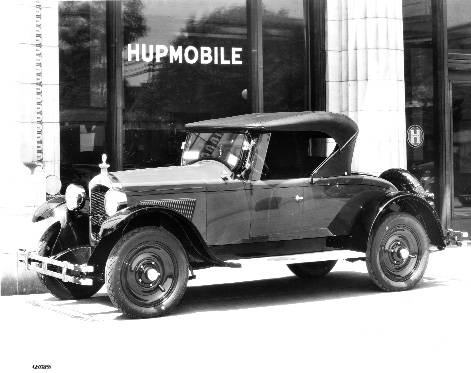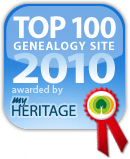After telling me of their war experience, my uncles Ray and Henry talked about a few other details of their family life when they were young . Everyone in the family, including children and grandchildren, called my maternal grandparents “Ma” and “Pa”.
Ma worked for the Bancroft Hotel in Worcester . The Bancroft is now the Sheraton . She would take the bus to work in the morning . There was a cop in a “cop box” in Lincoln Square who would jump out to help her cross the street . The family was familiar with the beat cops in their neighborhood . Once, when one of the local cops died, Pa took Ray to the wake . That was the first corpse that Ray ever saw.
The family lived in a triple-decker house on Huntington Avenue owned by Pa’s uncle Frank Niedzialkoski . At the time they lived there, a trolley ran up and down the street and cost 5 cents a trip . Often, Ray would walk to save the 5 cents . In addition to the house on Huntington Avenue, Pa’s uncle Frank owned a farm called Sky Farm in Sterling, Massachusetts . Ray, Henry, and their brothers and sisters would work on the farm during the summer . Ray remembered being very well fed.
Pa owned a number of cars during his lifetime . Even though the family didn’t consider themselves wealthy, they must have been better off than many of the other families in the neighborhood since they were one of the few families to own a car . Pa owned a Model T Ford . He later purchased a 1924 Hupmobile with the option of solid wheels rather than wire wheels .  The Hupmobile had windows that had to be buttoned in and windshield wipers you turned by hand.
Ma and Pa owned a three decker building on Prescott Street and operated a grocery store out of the first floor in a neighborhood that included a mix of all nationalities . Their building is the only building left standing on Prescott Street today . The building was located close to the American Steel and Wire factory where the people would work from 6 AM to 6 PM . The whistle would blow at 6 PM and a stream of people would come out and walk down Byron Street and past their house.
The family found ways to save money . When the children were young, Saturday was bath day . Ma would heat water on the stove and everybody would take a bath in the same water . Pa would resole their shoes himself and would make moonshine in the kitchen which he would barter with others in exchange for haircuts for the boys . The boys would go to the dump and find copper, brass, lead, and aluminum that they could sell . They would pick through the dump with 5-10 other kids and earn about $5 a week for their efforts . In hindsight, Ray marveled at the fact that they never caught serious diseases picking through the dump.
Later, Pa worked for Worcester Pressed Steel . The company owned land behind the factory and the employees were given a plot for a garden . Pa had one of those plots . At the time he worked for Worcester Pressed Steel, Pa owned a Hudson . In the winter, Pa would come home at night and drain the radiator so the water wouldn’t freeze . At the time, antifreeze didn’t exist and so people either had to use alcohol in the radiator to prevent freezing . To save money, Pa just drained the radiator at night and refilled it in the morning . He had preferred employee parking as a machinist at Worcester Pressed Steel and so he was able to park in the company garage during the day so the radiator wouldn’t freeze at work.
John Woodman Higgins, the owner of Worcester Pressed Steel, opened a steel museum known today as Higgins Armory . Although Worcester Pressed Steel is no longer in business, the Armory still exists . Pa worked at Higgins Armory for a while, and Pa gave my mother a cigarette lighter in the shape of a suit of armor . I plan to visit Higgins Armory during my visit to Worcester later this week.
Copyright © 2006 by Stephen J. Danko




